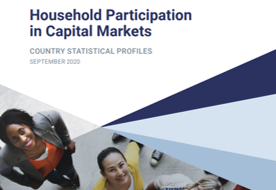Management Companies
EFAMA has been looking at legislative proposals with a direct impact on asset management companies and services, and closely follows any regulatory developments of critical importance to the sector. In addition to issues related to risk management and financial stability, high up on the agenda of EFAMA members is the framework for a prudential regime for Investment Firms (IFD/R), and related implementing measures directly descending from such framework.
EFAMA is focused on minimising the impact of the rules on asset management companies, in particular those holding a limited MiFID license. Key to the sector is the need for proportionality, especially firms that are not authorised to hold client money/securities, or to deal on their own account.
EFAMA's comments on the European Commission consultation on the review of the EuVECA & EuSEF Regulations
EFAMA Reply to 2nd consultation on NBNI G-SIFIs
EFAMA and its Members appreciate the opportunity to comment on the second FSB/IOSCO consultative document in the context of the current global debate around the alleged “systemic” nature of the asset management industry. EFAMA is the representative association for the European investment management industry. We represent through our 26 national association members, 63 corporate members and 25 associate members about EUR 17 trillion in assets under management, of which EUR 11.3 trillion managed by 55,600 investment funds at end‐December 2014.
European Statistics Q1 2020 | Alternative Investment Funds continued to attract net new money in Q1 2020 despite Covid19
The European Fund and Asset Management Association (EFAMA) has today published its Quarterly Statistical Release describing the trends in the European investment fund industry in the first quarter of 2020 with key data and indicators for each EFAMA member countries.
Investment Funds Distributor Due Diligence Questionnaire
Funds face unique challenges in performing intermediary oversight, and especially so because of MiFID II requirements, changing regulatory landscapes, and the absence of an industry agreed-upon standard between funds and their distribution channels. To help address these challenges, a dedicated working group developed a uniform due diligence questionnaire (DDQ) that will serve as the standard for investment funds (UCITS and AIFs) in performing onboarding and ongoing oversight of distribution channels.
AMIC and EFAMA update their report on Managing Fund Liquidity Risk in Europe
Asset Management in Europe - An Overview of the Asset Management Industry - November 2020
The report aims to provide a unique and comprehensive set of facts and figures on the state of the industry at the end of 2018 but also to highlight the fundamental role of asset managers in the financial system and wider economy.
Demystifying ETPs: an EFAMA guide for the European investor
Through its ETF Task Force, EFAMA has produced an Investor Education Guide intended to draw out, in a simple form, the defining features for the three main types of ETPs (Exchange-traded products) listed across European markets. The association hopes this guide will primarily assist investors in having a clearer understanding of different ETPs and help investors appreciate the differences between them, especially from a risk and product complexity viewpoint.
































